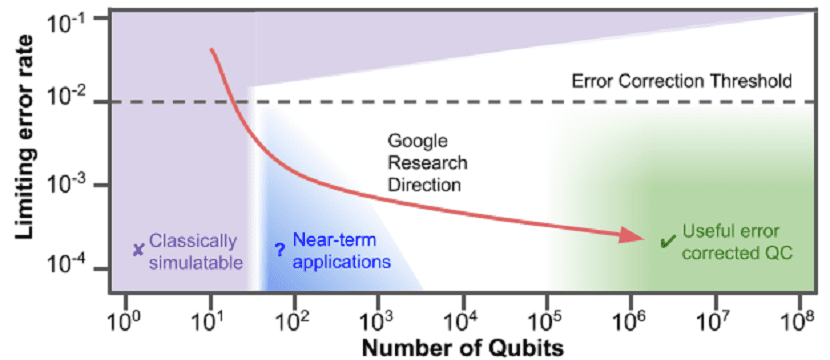
As you surely know today there are several multinationals that today already have fully functional quantum processors in their possession. The negative point of this technology, currently, we find it in that it is so new that at the moment we do not know it so in depth as to get any of these computers to be as fast as the theory says.
As it usually happens, this can be just a matter of time, it is not known how much, but surely and at the rate in which companies such as IBM, Microsoft or Google, to name a few, continue to invest all kinds of resources in their understanding and developing. At this point, today I want us to talk about bristle cones, the new quantum processor developed by Google with which they want to lead the race for quantum processing.

Britlecone is the processor with which Google will revolutionize the world of computing as we know it
Going into a little more detail and, as you can read in the press release published by Google itself, apparently with this processor they are literally looking to achieve, for the first time in history, that the performance of a quantum computer is superior to a traditional supercomputer when faced with a well-defined problem.
The idea is that thanks to Bristlecone, Google engineers and researchers will be able to solve a problem using much less resources and from one much more efficient way. Just at that moment there will be that inflection point in the world of technology that everyone expects, same in which it will finally be shown that quantum computing can finally be much more interesting, as far as data processing is concerned, systems and platforms that we all use today.

Thanks to Bristlecone, computing will reach a new level
To try to know a little more 'understandable'All this, tell you that specifically in Google they refer to thanks to Bristlecone, quantum computers can now begin to be used in solving problems that until now were endless for traditional systems no matter how powerful they were. A very clear example may be that, definitely, all current encryption algorithms can be broken, the same as today and according to the theory, are unbreakable.
To give us an idea of what is inside that processor that appears in the images, although it is only a part of it, tell you that we are talking about a prototype equipped with nothing less than 72 qubits inside, an amount that, although it may seem small, is much larger than what any other current processor can contain. At the moment perhaps the main problem, once a hardware of this type has been developed, we find it in the needs and requirements when developing a software completely as it is capable of extracting all the performance to a platform like the one you have just created Google.

Google engineers will now have to work on custom software development for this new processor
Entering fully into the software issue, to give us an idea of how we are currently, as the Google guys have officially revealed in a recent publication, apparently they have managed to develop a very special software that is capable of getting error rates are reduced to 0%, precisely one of the biggest problems of quantum computers and that is because they are very sensitive to disturbances and noise, something that ultimately results in errors with the calculations.
A very important detail is that this reduction in errors was achieved using two-qubit gates. Now all this software must be scaled to work with a processor like Britlescone. The goal now is get the error rate to be 49% with 0 qubits, a rate that would already be 'acceptable' to compete and be able to outperform current supercomputers.
Further information: Google